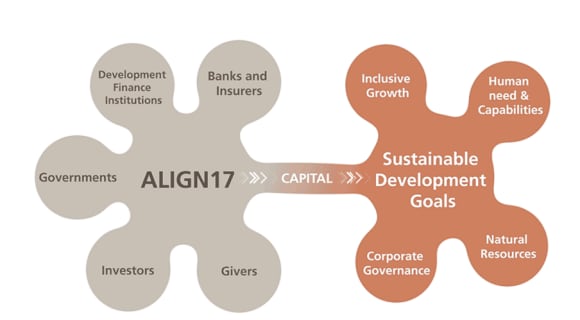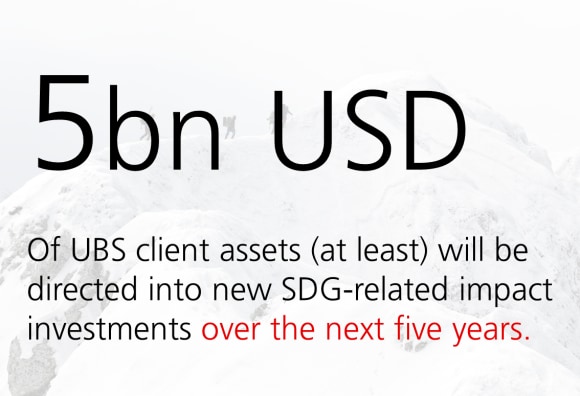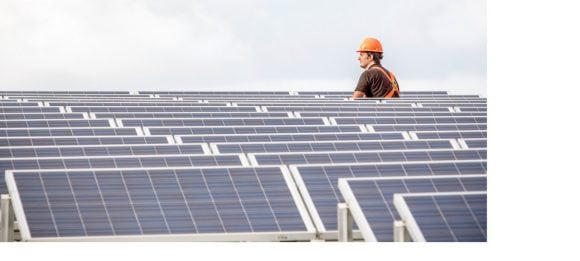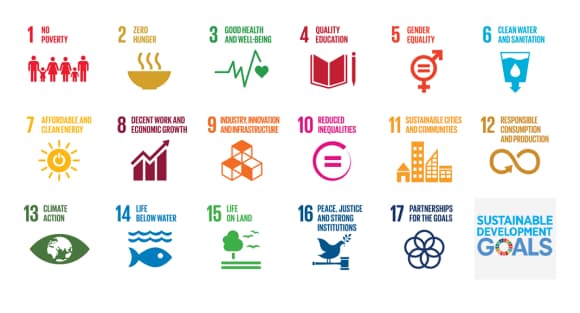Davos View: Why SII was this year's hot investment topic
Zürich 23 January 2017, 08:00 Sustainable Investing, Impact Investing

Reading time: 6 minutes
By Simon Smiles, Chief Investment Officer for Ultra High Net Worth at UBS Wealth Management
The theme of last week's World Economic Forum (WEF) Annual Meeting in Davos was 'Responsive and responsible leadership.' For mainstream investors, this used to mean investing only in responsible companies or being responsive to unsustainable corporate behavior. In 2017, however, the mainstream is moving past that definition.
The theme of last week's World Economic Forum (WEF) Annual Meeting in Davos was 'Responsive and responsible leadership.' For mainstream investors, this used to mean investing only in responsible companies or being responsive to unsustainable corporate behavior. In 2017, however, the mainstream is moving past that definition.
At this year's Meeting, UBS alone announced it will direct at least USD 5 billion in client money over the next five years towards impact investing, which aims to generate a deliberate and measurable social impact as well as a compelling financial return. Industry players as diverse as the Gates Foundation, the SDG Philanthropy Platform, accounting firm PwC and private equity manager TPG expressed interest in collaborating on Align17, a proposed platform driven by the World Economic Forum Young Global Leaders' program that focuses on funding the United Nations Sustainable Development Goals via impact investing as well as other forms of investment and philanthropy. UBS has also committed to help launch the platform.
The mainstream is evolving beyond pure sustainable investing towards sustainable and impact investing, or SII.

As the goals' 2030 deadline nears, and the demand for measurable social impact grows, the mainstream is evolving beyond pure sustainable investing towards sustainable and impact investing, or SII. Unless sustainable investors pressure companies openly and extract quantifiable concessions, it is hard to measure their impact on corporate behavior. By contrast, impact investing uses capital to create companies or projects that may not have existed otherwise, with a sustainability impact that is additive, intentional, and measurable. Although sustainable investing remains a key part of the investor toolkit, impact investing's contribution to sustainability targets is generally more explicit.

Although sustainable investing remains a key part of the investor toolkit, impact investing's contribution to sustainability targets is generally more explicit.
Impact investing has other qualities which are finally getting mainstream attention. First, in addition to impact, it also aims to generate a competitive return. In the past 12 months, large for-profit investors such as TPG have announced significant impact investment initiatives, underscoring the sector's return-generating potential. Second, it is scalable. Last year saw major advances in this regard, with a number of fundraisings concluded or announced of USD 400m or more for strategies like UBS's oncology impact investments. Third, it appeals to the next generation of wealth, specifically millennials. The Chan Zuckerberg Initiative underscored this by targeting a mix of investing and philanthropy when it launched in 2015. The ImPact, an impact investing community that includes prominent millennials from wealthy families, followed suit in 2016.
SII came into its own at the WEF Annual Meeting as the world tried to set rhetoric aside and invest in workable, impactful solutions.

Conversations at Davos underscored this trend. One example is clean energy. This year, nine sessions were devoted to clean energy and 15 to the related topic of climate change - a record total. WEF members see extreme weather as the biggest 2017 risk, according to a WEF survey. Our Davos white paper shows that the SDGs of affordable and clean energy and climate action are two of the SDGs that can benefit most from private investment. Another SDG in this category is zero hunger. Gastromotiva, an organization that aims to cut food waste, served food derived from food waste in Davos to raise awareness of this issue.
Following the Brexit vote and Trump's election in 2016, many Davos headlines have inevitably focused on geopolitics, especially given Chinese President Xi Jinping's presence at Davos this year. However, the globe still faces sustainability challenges that cut across political divides. In that context, SII came into its own at the WEF Annual Meeting as the world tried to set rhetoric aside and invest in workable, impactful solutions.
Continue reading
What are the Sustainable Development Goals (SDGs)?

The Sustainable Development Goals (SDGs) have one simple objective: to promote global economic growth and development that is sustainable. Sustainable for whom, though?
